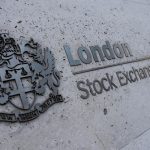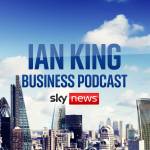A member of the Bank of England’s rate-setting committee has warned he sees inflation exceeding its latest forecasts without more aggressive action.
Michael Saunders, an external member of the Bank’s nine-member monetary policy committee (MPC), voted last week along with two others for a 0.5% hike in Bank rate aimed at tackling the effects of the cost of living crisis.
But the three were out-voted when a 0.25% rise, to a 13-year high of 1%, was implemented.
While the Bank has a 2% target for inflation set in its mandate, there is evident concern among a majority on the MPC that raising borrowing costs risks choking off already weakened economic growth.
Its update last week also warned, for the first time, of the risk of recession later this year.
But Mr Saunders used his speech to a Resolution Foundation think-tank event to warn that the Bank’s credibility could not be taken for granted as inflation spikes.
While rate rises since December have added an estimated £1,300 to annual payments for millions of mortgage borrowers on deals which track Bank rate, Mr Saunders argued the MPC should “lean strongly” against high inflation expectations.
Morrisons triumphs after weekend shootout for control of McColl’s
Boost to future of electric cars as UK’s first lithium plant secures new investment
Universal Credit: Government urged to stop ‘dangerous’ rollout this week
He fears the impact of so-called secondary inflation adding to the problem down the track.
Bank governor Andrew Bailey has previously warned against wage rises which aim to match the pace of inflation – currently at a 30-year high of 7%.
The consumer prices index measure is tipped by economists to hit 9% – the highest level for four decades – when the next figures are released in nine days’ time.
Please use Chrome browser for a more accessible video player
The leap will reflect the impact of the 54% – or £693 – average rise in the energy price cap unleashed in April.
The Bank of England’s new central forecast for CPI inflation stands at 10.25% for the year’s end but there are already warnings that the cap could go up by a further £900 annually in October, potentially putting that forecast at risk.
Saunders said in his speech that inflation and key measures of longer-term inflation expectations were uncomfortably high and were feeding into underlying pay growth and services inflation.
“I put considerable weight on risks that, unless checked by monetary policy, domestic capacity and inflation pressures would probably be greater and more persistent than the central forecast.
“As a result, my preference has been to move relatively quickly to a more neutral monetary policy stance,” he explained.
“The strength of external costs is eroding real incomes and is likely to cap real spending,” he added.
“But, by creating a long period of above-target inflation, these external cost increases also may exacerbate the rise in inflation expectations and hence, with the tight labour market, could make it harder to ensure domestic inflation pressures return to a target-consistent pace.”






















